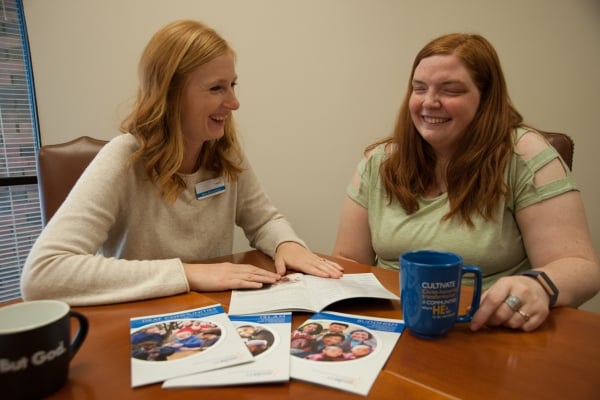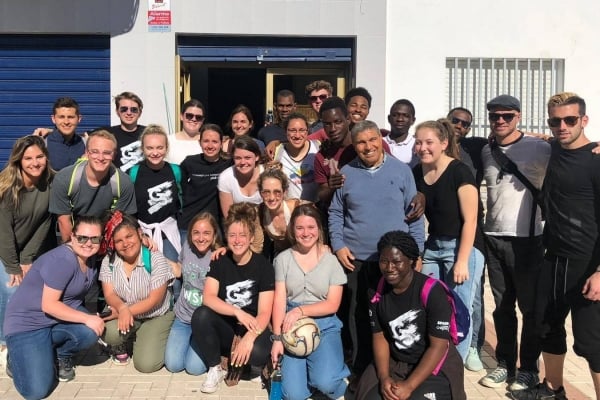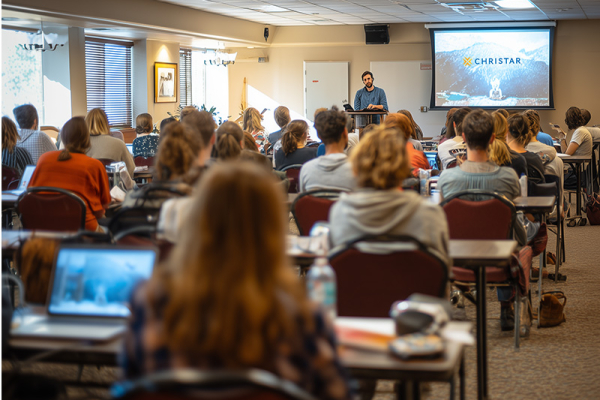
Beyond a Degree: Five Things to Know About Education and Preparing for the Field
If missions is on your radar, you’ve likely thought about how your college education will prepare you for cross-cultural ministry. You might be just starting to think about declaring a major and want to be intentional about choosing an educational path that will equip you to serve overseas. Or you may be halfway through a degree program and sensing that God wants you to serve Him in a least-reached community. Maybe you are a recent graduate and are wondering how you can use your training in a cross-cultural setting.
While college can play a significant role in giving you the training you need to serve cross-culturally, it’s just one piece of a much larger picture. The big goal isn’t to check off the right educational boxes or get a certain combination of letters behind your name—it’s to prepare for the challenges of ministry in a least-reached community.
The good news is there’s not one “right” plan to follow. God uses many forms of education—both formal and informal—to prepare His people to serve effectively. Here are five things to consider about preparing well, no matter where you are on your educational path.
A Bible degree doesn’t equal an open door.
Knowing God’s Word and being able to apply it is vital to effective ministry in any context. But you can’t live in most least-reached countries with a Bible degree alone. Christian workers often need professional skills that contribute something of value to gain entry into least-reached communities.
Common areas of study that provide pathways to least-reached places include education, health care and business. But these are far from your only options. Christar workers around the world use their training and skills in everything from counseling to agriculture.
God gave you gifts and passions for His glory.
God has blessed you so that you can be a blessing—and that includes the talents and passions He’s given you. He’s uniquely wired you for His purposes, and He can use the things that make you tick for His glory in a least-reached community. Christar workers have found this to be true as they’ve seen God work through things like a love for horses and an interest in American Sign Language.
The field you’ve studied or that you’re considering as a major probably reflects the unique set of opportunities, gifts and passions that God has given you. It’s part of a personal tool box that He can use to accomplish His purposes through you. So, as you think about your educational path, explore what you enjoy! Ask the Lord to show you how He could work through the things that interest and excite you.
Preparing well might mean a longer timeline.
Getting the training and experience you need to serve effectively could take longer than the four years of a bachelor’s program. You may need to add a year of Bible training to your degree or work in your chosen field to gain practical experience before looking for a job overseas.
Micah,* for example, knew that he would only be welcomed into the community God had given him a passion to reach if he possessed skills and experience that would be valued there. So, over the course of a decade, Micah became an engineer and earned his doctorate, all with the big goal of being able to live in a place where a church doesn’t exist yet. His path to the field wasn’t efficient by human standards, but his commitment to pursuing excellence in his profession for the sake of the gospel has enabled him to become an asset to his community and a light for Christ.
Biblical and theological training come in many forms.
Effective cross-cultural ministry requires strong biblical knowledge. But a Bible degree or seminary education aren’t the only ways to build a strong foundation in Scripture. In fact, these options might not be the best ones for you, especially if you sense God calling you to serve through a professional role.
Non-degree programs can provide solid biblical teaching—sometimes at a fraction of the cost. Your church may provide a Bible training program, which is a great place to start. You could also explore certificate programs offered by colleges, seminaries and Bible institutes, as well as training offered by nontraditional education organizations.
Christar, for example, partners with the BibleMesh Institute to offer quality online theological education at an affordable rate to candidates, appointees and workers. As part of Christar’s training for new workers, appointees complete the online BibleMesh pre-assessment, which determines if they need any additional study in Bible, doctrine or historical theology. Then, they complete a custom program to ensure they head to the field with a well-rounded biblical foundation.
Creativity and teachability are key.
Going to the field well-prepared isn’t just about taking the right classes and earning a degree. It also involves building character traits that will allow you to learn and adapt amid the challenges of serving in an unfamiliar culture.
Look for opportunities to build a teachable spirit and to grow in creativity and flexibility—especially those that challenge you and take you out of your element. For example, seek out an international friendship partner, volunteer in the kids or prison ministry at church or sign up to be part of the coordination team for a Perspectives class. Ministering in ways that require you to learn new things and think outside the box will build valuable skills that will benefit you no matter how and where God calls you to serve in the future.
Being equipped for the field is much less about choosing the right major than it is about asking “Who do I want to be?” God created you uniquely, and you are a steward of the gifts and passions He’s given you. Ask Him how He wants to use you in what He’s doing and to guide you in preparing well.
We’d love to come alongside you as you seek to prepare well for cross-cultural ministry! Just email [email protected] to connect with us.









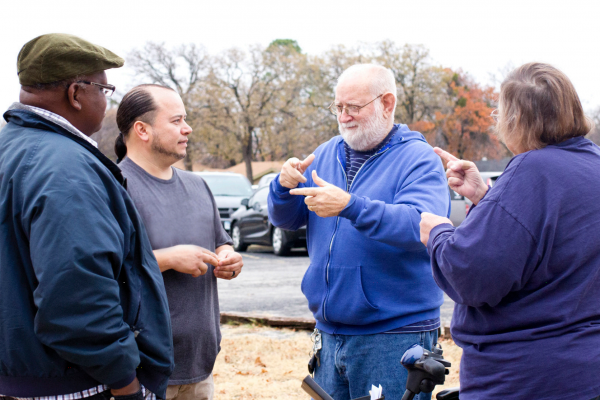




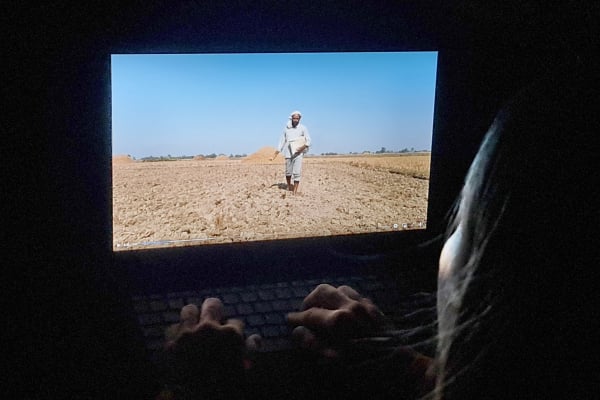












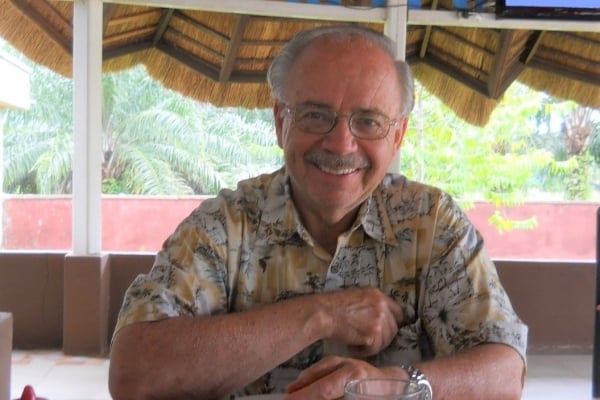

_1623444031_600x400.jpg)








